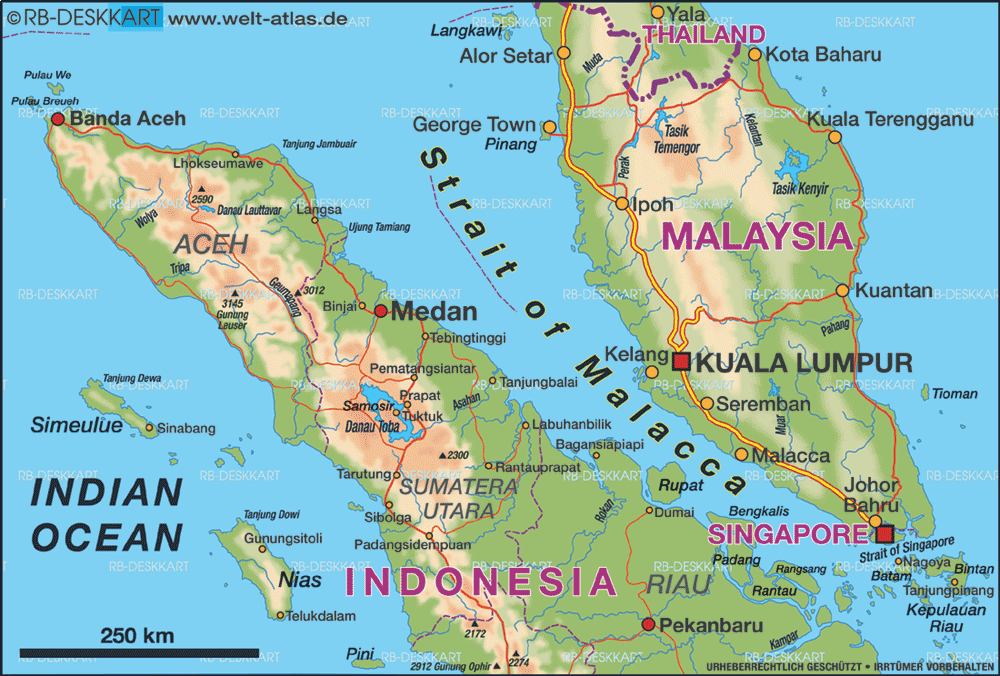Indonesia, though a reluctant partner in regional maritime security agreements, possesses some of the most strategically important waterways in the world. The straights of Malacca, Sunda and Lombok see nearly 3 times as much oil travel through their waters than the Gulf of Aden and ground pipelines in the Middle East. In 2002, that equated to just over 10 million barrels of oil in that year alone, and projects are for that number to double within the next decade.
As oil prices remain high and economic situations for Southeast Asians become more dire, these vital straits are becoming increasingly susceptible to piracy. There has been some regional cooperation on tackling the issue– the Association of Southeast Asian Nations (ASEAN) drafted a Regional Cooperation Agreement on Combating Piracy and A

rmed Robbery (ReCAAP) in 2004. But because of ReCAAP’s narrow focus on the problem, Indonesia has yet to become a full-fledged member.
This agreement was struck in response to an epidemic of piracy that occurred in Southeast Asia in the later 1990’s and early 2000’s. This was driven by an economic crisis in 1997, which forced many to turn to the black market to find employment or income. Thanks to regional cooperation, but more likely due to a stable economy, pirate attacks dipped in the middle part of the decade. The maritime security didn’t last for long though– they began to rise dramatically again in 2009, another year of economic turmoil.
While regional security cooperation does serve to track down pirates after they have struck– or to stop them in the middle of a raid– many feel that this is only hacking at the branches of this evil rather than striking at the root.
In a few cases, motivation for piracy has been political. In the early 2000’s, Indonesian waters were plagued by pirates from the Free Aceh Movement. These Sumatran separatists used piracy to terrorize, but also to raise funds for their guerilla wars.
Al Qaeda affiliate Jemaah Islamiyah, an organization hell-bent on establishing an Islamic Caliphate in Southeast Asia, has also been known to use piracy in a purely terrorist capacity.
But in most cases, piracy is simply a desperate attempt to accumulate wealth when there are no other options. Traditionally, most pirates have been driven into their careers because they have no other options. They are not part of large organizations and have no motivation other than making a living.
It is in this arena that many of the multilateral maritime security agreements, such as ReCAAP, fall short in their attempt to address the issue. It is for this reason that Indonesia is reluctant to commit themselves to the methods outlined in such agreements, and would probably prefer to tackle the problem in their own way.
Although providing economic incentives for poor fisherman to stay out of dirt would be a great help, Indonesia has put much focus on developing their own naval capacity. The decision here is likely because it addresses two issues: It allows Indonesia to become more self-reliant in their efforts to combat the symptoms of piracy, but also increases their strategic leverage in a region that is currently ripe with maritime strife between nations.
China’s recent naval aggression has caused several Southeast Asian countries to react in a similar way. But while the Philippines, Vietnam and Japan have active, direct disputes with China, Indonesia has remained out of conflict’s way, but hardly on the sidelines.
Thanks to their strategic location, somewhat neutral position, and respectable naval capacity, Indonesia has become a trusted intermediary in the tense South China Sea dispute between China and the ASEAN-supported Philippines. However, as China moves to increase their own naval capacity, Indonesia must make an attempt to keep up, otherwise it’s power in the region will wane significantly.
However, their steps so far in this area have raised significant questions about how effective it will be for the country’s strategic goals. Although it is planning to expand its naval capacity in the next 10 years, it will focus mostly on defensive vessels. While there is a role for such a move, it doesn’t really line up with their goal of increasing their ability to broker peace and stability in an increasingly militarized region.
Such a diminished capacity leaves the door open for a non-regional power, such as India or the United States, to step in and try to diffuse tensions. While this may be better in for long-term security, Indonesia will suffer from its increased ability to assert control over its own strategically important waters.